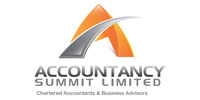The Federation of Small Businesses is calling on the government to simplify customs declarations procedures as it emerges that most small firms that trade overseas rely on expensive intermediaries to complete complicated customs paperwork.
High intermediary fees are one of the biggest challenges facing small international traders, according to a new report on Customs Clearance by the Federation of Small Businesses (FSB).
Its survey of small firms that trade overseas has found that most firms cannot handle complex customs paperwork in-house and need to use high-cost intermediaries. Four in ten firms polled said that they will continue to use intermediaries because they lack expertise on customs procedures.
The findings come on International Micro, Small and Medium-Sized Enterprises Day (27 June), a UN campaign to recognise the crucial role small firms play in the global economy.
Key findings from the FSB report
- Only 9% of SMEs have a dedicated staff member or team that deals with customs procedures;
- 71% of small exporters and importers say they use an intermediary for at least some of the process of handling customs declarations;
- Just 24% handle the entire process in-house;
- Fast parcel operator (60%) is the most widely used type of intermediary by small international traders, followed by freight forwarder (50%) and customs agents/broker (26%);
- Small international traders also say they have been asked to pay fees attributed to post-Brexit paperwork; in many cases, there is a lack of clarity from intermediaries on what these extra costs are for.
Five ways to reduce barriers to trade for SMEs
The FSB report includes a list of recommendations to bring down the costs and barriers of international trade:
- Adopt a "think small first" approach to customs policy development.
- Build a small business-friendly Single Trade Window, an online portal delivering a "once and done" approach to government data collection.
- Target business support towards those with high export potential.
- Monitor anti-competitive behaviour resulting from supply chain disruption.
- Raise the de minimis customs duty threshold to £1,000.
Reducing the costs of trade
"Unlike big corporates, most small firms don't have the specialised resources needed to deal with complex customs procedures, so they're dependent on intermediaries," said Tina McKenzie, FSB policy chair. "Smaller businesses may also have to bear higher costs as they are unable to commit to large volume and less able to reach fixed price agreements or to negotiate with couriers."
McKenzie has welcomed the ongoing government consultation on introducing voluntary standards for customs intermediaries to improve the quality of service. She added: "There's also a need for an effective and streamlined trade infrastructure with clear guidance to help reduce the costs of trade. This will unleash the export potential of small international traders as well as encouraging more businesses to sell overseas. Small firms' appetite to explore new markets and tackle trade barriers means there is reason to be optimistic about the future of SME international trade, and policymakers should make the most of this opportunity."
Written by Rachel Miller.
